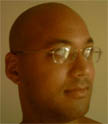What If Bill Clinton Had Run for President in 1988?
Al Giordano Sun Sep 30, 9:23 PM ET
Former President Bill Clinton's recent attempt to slow Senator Barack Obama's rise and the words he chose to speak it raise a new question: What if Bill had run for president in 1988?
It's natural that a husband would be protective of his spouse's political ambitions. And when a rival candidate begins to build momentum in Iowa's first-in-the-nation caucus and in national fundraising who can blame Bill Clinton for taking that recent swipe at Barack Obama? In a televised interview with columnist Al Hunt, Bill echoed Hillary Clinton's claim that Obama is too "inexperienced" for the Oval Office. He said:
"I was, in terms of experience, was closer to Senator Obama, I suppose, in 1988 when I came within a day of announcing... I really didn't think I knew enough, and had served enough and done enough to run."
When Clinton did run for president, in 1992, he was the same age as Obama is today. The claim by a white male that at age 42 he had as much experience as a 46-year-old black man probably will bring unintended consequences by firing up a larger Obama vote among African-Americans. The hubris of that statement invokes, all too neatly, the gripes by other white males in affirmative-action friendly workplaces across America; it's a way of speaking in code that most white Americans don't notice, but that black Americans understand painfully well.
And while Obama has smartly ignored the bloodlust of pundits that goad him to "take the gloves off" and hit Hillary Clinton more directly (America may be ready for a black president, but probably not for a younger black man pummeling an elder white woman, even with mere words), Bill Clinton's attempted put-down offered Obama a clean shot at the rival camp through its surrogate: Everybody loves to see the younger athlete score on the aging former champ. And that's exactly what Obama did.
In an act of political jiu-jitsu, Obama turned Clinton's words about experience from 1992 into a Wayback Machine endorsement of his own 2008 quest. In a 1992 debate with George H. W. Bush, Clinton had said: "The same old experience is not relevant... you can have the right kind of experience and the wrong kind of experience."
"He's exactly right," smiled Obama.
Score!
He was followed by the so-far neutral Robert Reich (one of the few cabinet-level veterans of the Clinton White House that is still widely beloved and trusted among Democrats) who jumped up from the sidelines and kicked in an extra point for Obama. Reich said: "While I can understand Bill Clinton's eagerness to undermine his wife's most significant primary opponent, he is not, I believe, completely ingenuous. I happened to talk with him in 1988 before he decided not to run, and also in 1991 before he decided to run the following year. His calculation at both times was decidedly rational and entirely political, based on whether he could win."
Bill Clinton's statement begs a more interesting question: What if he had run for president in 1988, defeated Mike Dukakis for the Democratic nomination, and bested Bush the elder for the White House?
Would a younger President Clinton have been so obsessed as Bush, Sr. was with exorcising "the ghosts of Vietnam" to have invaded Panama in 1989?
Would Clinton have appointed William Bennett as "drug czar" in 1989 and begun the demonization of pot smokers and cancer patients, and wholesale imprisonment of young black males, that the escalation of the war-on-drugs wrought on America?
Would Clinton, in a speech before Congress on September 11, 1990, have said: "Out of these troubled times, our fifth objective -- a New World Order -- can emerge"?
Would a younger Clinton administration have signaled to Iraqi leader Saddam Hussein (then a US ally) that it would look the other way if Iraq invaded Kuwait but then gone to war against Iraq once that happened?
Would hundreds of thousands of US military veterans of that Gulf War be permanently disabled and still suffering the ailments and syndromes of that trauma today if Clinton, and not Bush, had been president then?
Would Islamic fundamentalists and terrorist organizations have gained so much support had the US not led a war that killed hundreds of thousands of Muslims in the Gulf War?
Would Caspar Weinberger, Elliot Abrams, Robert McFarlane and others that conspired to traffic in cocaine and armaments to support right-wing guerrillas in Nicaragua have received pardons from Clinton after their crimes, as occurred under Bush I?
Would Clarence Thomas be on the Supreme Court today?
Come to think of it, Bill Clinton probably should have run for president in 1988 when he was younger and less jaded.
Had Clinton arrived in the White House four years earlier, he probably would never have met Paula Jones back in Arkansas in 1991 or the state troopers there whose testimony later put the Clinton White House on a permanent political defensive, scuttling the progressive agendas promised during his 1992 presidential campaign for most the rest of his tenure.
Maybe if Bill Clinton had been president when the Berlin Wall came down in 1989, the peace dividend could have been realized at the end of the Cold War, an authentic peacetime economy could have boomed, and America wouldn't be suffering the blowback of the terrible foreign policy choices made by the first Bush presidency from 1989 to 1993.
But hindsight is 20-20 and we can't turn the clock back, right? Too bad we can't fix the mistakes of 1988 all over again in 2008 and after a two-term Republican president vote for a younger forty-something Democrat that is not yet so jaded by what Washington DC calls "experience."
Oh.
Wait a sec.
We can?




